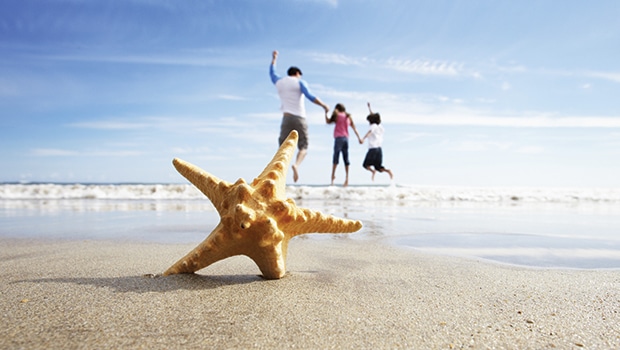As a rising number of businesses are measuring, reducing and offsetting their carbon emissions in the fight against the world’s climate crisis, Jane Wolfe finds out how some are striving to go further than carbon neutral
With the UK Government aiming to decarbonize all sectors of the economy to meet its goal of net zero by 2050, and almost half (49%) of UK consumers seeking to reduce their carbon footprint in 2022 by changing their food choices [Teads/Kantar], the journey to carbon neutral is top of many businesses’ agendas.
Alara Wholefoods works to its own exacting standards when it comes to emissions, due to the fact, says founding director Alex Smith, that there are just so many variables for the production of each ingredient in any given product.
Smith explains that emissions are categorized into three groups or scopes: Scope 1 covers all direct emissions, and is linked to fuel combustion; Scope 2 spans indirect emissions, and is related to purchased energy; and Scope 3 incorporates all other indirect emissions, associated with the food, packaging, transportation, distribution and a host of other factors. A company can control Scopes 1 and 2, but Scope 3 emissions largely aren’t under their control, and these have by far the greatest share of the carbon footprint of a food product. These are also the most difficult to calculate, but, Smith stresses, in order to discover the true embedded carbon figure in food, they have to be taken into account.
Taking responsibility
“While these Scope 3 CO2e emissions are impossible to accurately measure for each ingredient 100% of the time, I believe the food industry as a whole needs to seriously engage with this work in a transparent way. To ameliorate the huge contribution that food and farming make to global heating, food businesses must start taking responsibility for the embedded carbon in the food they produce. You can’t take responsibility unless you measure what the Scope 3 CO2e is.”
In 2020, as part of its transition towards net zero food production, Alara started a project with the University of Westminster to calculate the embedded carbon (CO2e) of the 21 raw ingredients in its Net Zero Food range, and in 2021 became the first cereal manufacturer in the world to declare the Scope 3 CO2e on-pack.
To ameliorate the huge contribution that food and farming make to global heating, food businesses must start taking responsibility
Another element to Alara’s transition is its partnership with Rainforest Saver through which it offsets the embedded carbon in its products by buying Inga trees. The charity – which works to conserve rainforests and alleviate poverty in Central Africa and South America – employs a pioneering farming technique called Inga alley cropping where crops are grown in between rows of fast-growing Inga trees.
Planting trees is one of the best methods to offset CO2e, asserts Smith, as they capture CO2 and use it to build their trunks, branches, roots and leaves. By funding tree planting, companies can ‘absorb’ the same amount of carbon from the air that has been released during the manufacture of their products, and thus become carbon neutral. “Over a 20-year period an Inga tree will sequester half a tonne of carbon, which is about 1.9 tonnes of CO2,” he says.
Support for business
For brands seeking some help and advice, a number of organizations are on hand to support businesses on their decarbonization journeys, with some offering certification schemes.
The CarbonNeutral Protocol, which was created in 2002 by Climate Impact Partners, claims to be the first organization to provide clear guidelines for businesses to achieve carbon neutrality. Its CarbonNeutral Certification has been attained by Bulldog’s Original Moisturiser in the UK, and Neal’s Yard Remedies has held the certification for 11 years when it became the world’s first CarbonNeutral high street retailer.
Carbon neutral since 2020, oat milk brand Minor Figures worked with ClimatePartner to measure the Scope 1, 2 and 3 carbon footprint of its employees, operations and products throughout its global supply chain. Its reduction methods include the installation of refill locations across the UK to cut down on waste – resulting in a substantial drop in emissions per litre of Oat M*lk supplied – and its emission-offsetting projects have included Clean Cookstoves in Peru and Biogas in Vietnam.
Working with Greenr, natural and organic bodycare brand Greenfrog Botanic was able to calculate its emissions from production, transport and working environment to ensure they were as low as possible and is allocating a proportion of its profit to carbon capture projects such as the Vera VCS Accredited Papua New Guinea forest conservation project.
This initiative expects to save nearly 60 million tonnes of CO2 emissions over 30 years through the avoidance of exploitative industrial timber harvesting in the project area. “This phenomenal rainforest would soon be cut down and sold as timber if not for the revenue from carbon offsets, which allows the landowners to keep the forest and protect its biodiversity,” says Greenfrog Botanics’ co-founder Nick Bridger.
Stating he is proud to be a carbon positive brand, he explains: “Right from the get-go, this was in our DNA. We work in large, shared community office (low emissions). I cycle to work, Kaygon (our digital marketing genius) takes the bus. It only seemed logical to take the next steps to gain carbon positive credentials.”
We also go the extra mile for our products and work on the basis of putting back ten times our product emissions
Outlining why the brand chose reforestation as opposed to planting trees, Bridger says: “Trees need to get pretty big before they can capture enough carbon. In fact, a single tree can only offset one tonne of CO2 in about 100 years. That’s a pretty long time, and lots of things can happen to your tree. What if it’s cut down or has a disease? If you’re really passionate about forests, then the forest conservation project is a great one as the trees are already fully grown and capture as much CO2 as they can.”
So how easy is it for a brand to move from zero to positive? “Where there’s a will there’s a way,” says Bridger. “The starting point of the company will determine how easy it will be to gain carbon positive status. For us, our working environment and products required little change. We also go the extra mile for our products and work on the basis of putting back ten times our product emissions, just to be sure we can claim neutrality. This also includes estimation for final product delivery, and how customers use our products. So, for example, with a shampoo bar, we also include the water heating, water use and disposal for an average shower.”
Online footprint
Another way of reducing emissions, although this may not be something that immediately springs to mind, is by lowering your website’s carbon footprint.
Future Selves is an independent design studio focused on creating ‘a new wave of carbon conscious’ websites for purpose-driven businesses. “Our work centres around designing for efficiency, with the aim of creating websites that are focused and fast,” says founder Jason Bradberry. “We’ve very much bought into the ethos of less, but better.”
Our lives are increasingly connected, and there’s a carbon cost to this which has a very real impact on our planet
Explaining how websites create emissions, Bradberry says: “Every time we access the Internet we’re using energy. That energy comes not only from our devices, but also the data centres that store and back-up all of the data and files from the websites and apps we use, and the networks that transfer that data from the data centres to our devices.
“Every time we load a web page, the browser sends a request to the host server, and the server delivers the content of the web page to the device, usually in under a second. This data is sent through a vast global data network, which includes huge fibre optic cables under the ocean, national data networks, mobile data networks and local Internet networks, right down to your home Wi-Fi. It’s a very physical process, using energy at every step of the journey. And all of this energy use creates emissions. Our lives are increasingly connected, and there’s a carbon cost to this which has a very real impact on our planet.”
The more data transferred for each page load, the higher the carbon footprint of the page, he says, adding that in the early days of the Internet a typical web page was measured in the kilobytes whereas now it’s not unusual to find websites measured in tens
of megabytes.
To cut a website’s carbon footprint, the first step is to ensure it’s hosted by a provider that uses green energy to power its data centres, and then reduce the amount of data transfer for each page load. “For higher traffic websites even a small reduction in the file size of the page can result in a significant carbon reduction over a year,” explains Bradberry. “There are some big wins for reducing website file size which everyone can do, for example using fewer images, making sure images are optimized and correctly sized, avoiding video where possible, and never setting videos to autoplay. Deleting old files that are no longer required can also help reduce unnecessary energy use from data storage.”
But, he adds, perhaps the most important element is to try and keep web pages focused: “The more we design the web to be free from distraction, the more we can empower visitors to find what they’re looking for quickly, which can have a very positive effect not only on minimizing website carbon emissions, but also on conversion rates and brand perception. Design is the single most effective tool we have available to us to create websites with minimal environmental impact, and when done well, there’s a direct business impact too. It’s a win-win when we start thinking this way.
“More and more we’re seeing a move towards doing business in a way that aligns with people’s values, and business owners are looking to find ways to create a positive impact through their work. Creating a low-carbon website is a great way to reduce your digital carbon footprint and to demonstrate to your customers that you care about the impact of your business on the planet.”
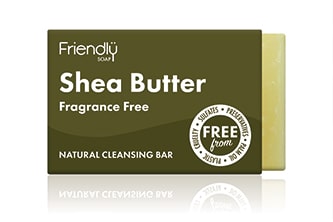 Shea Butter – Natural Cleansing Bar
Shea Butter – Natural Cleansing Bar
Friendly Soap
E-mail: [email protected]
www.friendlysoap.co.uk
We don’t think you can beat the rich blend of fatty acids packed into this cleansing bar. It’s a beautifully simple product. Gentle, moisturising and containing vitamin A, it’s nature to the rescue, and perfect for your daily routine. Shea bliss!
Each Shea Butter bar is handmade with just 4 natural ingredients. Shea butter, coconut oil, olive oil and water.
All Friendly Soap products are plant-based and plastic-free. The company is registered with Cruelty Free International, The Vegan Society and The Living Wage Foundation.
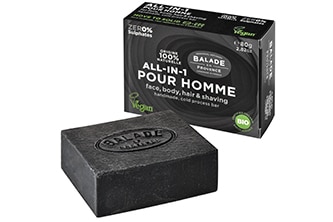 Balade en Provence Men’s All-In-1
Balade en Provence Men’s All-In-1
Kinetic Natural Products Distributor
Tel: 08450 725 825
E-mail: [email protected]
www.kinetic4health.co.uk
Formulated especially for men, Balade en Provence All-in-1 solid bar is a natural hair shampoo, face and body wash, and shaving bar that does it all. This bar is certified organic, enriched with coconut oil and shea butter and infused with an invigorating citrus scent for the ultimate shower and care experience. Certified vegan by the Vegan Society, handmade in France, plastic-free product and packaging, which comes with a packaging promise of being both 100% compostable and recyclable – zero waste. Balade en Provence products are lovingly handmade in Provence and reflect the artistry, fragrance and flora of the region.
For more information visit www.kinetic4health.co.uk or email [email protected]
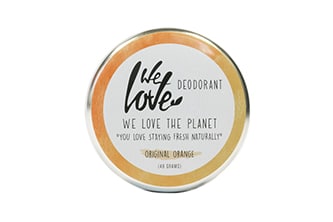 We Love the Planet Deocream O
We Love the Planet Deocream O
Kinetic Natural Products Distributor
Tel: 08450 725 825
E-mail: [email protected]
www.kinetic4health.co.uk
A cream-form deodorant in a recyclable tin with certified 100% natural origin ingredients which as well as keeping you smelling and feeling fresh have a soothing and moisturising effect. With a combination of beeswax, coconut oil and cornstarch powder, the deodorant is easy to spread, quickly absorbed into skin, and will not clog pores. Baking soda neutralises odour, and natural essential oil blends provide a pleasant fragrance. Each deodorant last 2-3 months, and offers 24-hour freshness when used daily. We Love the Planet also offers deosticks in compostable cardboard tubes, vegan and fragrance-free options for sensitive skin.
For more information visit www.kinetic4health.co.uk or email [email protected]
 Lamazuna Eco Accessories
Lamazuna Eco Accessories
Living Planet Distribution
Tel: 020 3176 9982
E-mail: [email protected]
www.livingplanetdistribution.com
French eco cosmetics brand Lamazuna’s reputation for sustainability extends to its range of zero-waste bathroom accessories. The Oriculi is an ear cleaner with a scoop at one end and a spherical finger rest to ensure a steady hand. Based on a classic Asian design, the Oriculi is available in eco-friendly French beechwood, or 100% renewable bioplastic. The Cleansing Wipes are handy for removing makeup and even tackle waterproof mascara! They can be washed and reused up to 300 times, saving money and waste. Finally, the Feminine Cup is designed in medical-grade, platinum silicone for easy use and comes in two handy sizes for long-lasting comfort.
 Plantable Greeting Cards
Plantable Greeting Cards
Loop Loop Ltd
E-mail: [email protected]
www.looploop.co.uk
Sustainability is at the heart of what we do! Plastic-free, recycled materials and plantable with hand-drawn designs. Loop Loop plantable greetings cards are made from 100% recycled materials and are all embedded with wildflowers seeds. Your customers can plant the whole card in the ground and grow wildflowers from the paper. All the flowers are pollinators too, which is great for the bees. Every card is 100% plastic free, printed with vegan inks and comes with a recycled envelope. From Christmas to birthdays, we have plantable cards for all occasions – get in touch today to find out more.
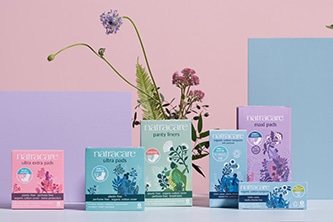 Natracare
Natracare
E-mail: [email protected]
www.natracare.com
Revolutionise your period with Natracare’s range of organic and natural period care. The number one choice for over 30 years, empowering people with periods in over 80 countries to make sustainable choices for themselves and the environment.
Say goodbye to all plastics, perfumes, and chlorine. You’ll only find soft, breathable, natural materials in Natracare products.
Natracare is proud to be a member of 1% for the Planet.
As members, we give 1% of our annual turnover every year to charitable organisations that support our planet and help keep our environment thriving.
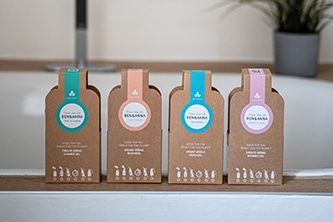 Ben & Anna Shower Flakes
Ben & Anna Shower Flakes
Pravera Ltd
Tel: 01557 870203
E-mail: [email protected]
www.benandanna.uk
The new Shower Flakes by Ben & Anna allows you to create your own sustainable shower gel at home. Simply pop the flakes into a dispenser, add warm water and shake it like a polaroid picture! The Favourite autumn fragrance, Mint & Lemon will leave your body feeling naturally cleansed and smelling great from the refreshing and zingy scent. Made with 100% natural ingredients, vegan and eco-friendly packaging.
 Sweet Ginger Flower Anti-Dandruff Shampoo
Sweet Ginger Flower Anti-Dandruff Shampoo
Urtekram/Midsona Denmark
E-mail: [email protected]
www.urtekrambeauty.com
Urtekram Sweet Ginger Flower Anti-Dandruff Shampoo is a gentle anti-dandruff shampoo enriched with panax ginseng root extract to help give a stronger hair and conditioning aloe vera which retains moisture. Apply to wet hair and rinse. For best result complete your hair care routine with matching anti-dandruff conditioner. With the refreshing scent Sweet Ginger Flower. Certified by Ecocert Cosmos Organic, 99% natural origin and vegan.



